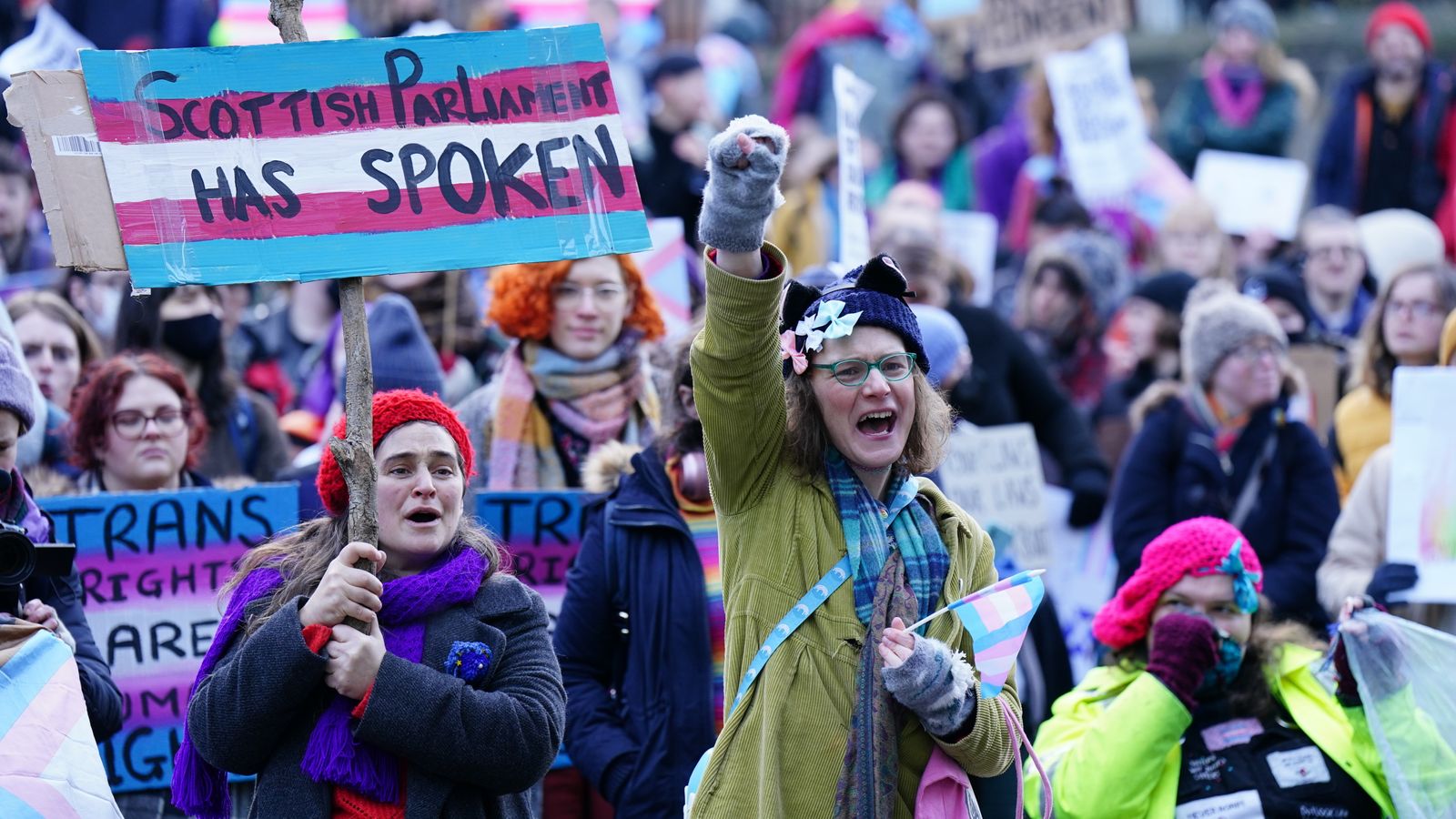The Scottish government will go to court next month to challenge Westminster’s decision to block its much-debated gender reform bill.
The hearing has been locked in to begin on 19 September after both parties told Scotland’s highest civil court they are ready to present their arguments.
A procedural hearing was held at the Court of Session in Edinburgh on Wednesday.
It was set to be livestreamed as part of the Scottish Courts and Tribunals Service’s (SCTS) “commitment to open justice” but failed to stream online due to “technical issues”.
The case will be heard over three days by Lady Haldane.
The Scottish government will present its argument first, with the UK government following.
Social Justice Secretary Shirley-Anne Somerville confirmed in April that Holyrood would lodge a legal bid to contest the UK government’s use of a Section 35 order to stop the bill from receiving royal assent and becoming law.
Good Samaritan in Edinburgh robbed at knifepoint by man on ground he went to help
Scotland’s deficit falls as North Sea oil and gas revenues reach record £9.4bn
Father Ted co-creator Graham Linehan considers legal action over cancelled Edinburgh comedy show
The Gender Recognition Reform (Scotland) Bill was passed by MSPs just before Christmas.
It aims to simplify the process for trans people to change gender in the eyes of the law. No diagnosis or medical reports would be required, and the period in which adult applicants need to have lived in their acquired gender would be cut to three months.
Teenagers aged 16 and 17 applying for a gender recognition certificate would have to live in their acquired gender for at least six months.
Critics have argued the proposals undermine women’s rights and single-sex spaces.
Read more:
Why is the bill controversial?
Please use Chrome browser for a more accessible video player
Be the first to get Breaking News
Install the Sky News app for free
It became a constitutional dispute in January when the UK’s Scottish Secretary Alister Jack took the unprecedented step of using Section 35 of the Scotland Act to prevent the bill from gaining royal assent.
Mr Jack claimed the bill clashed with UK-wide equality laws and argued differing systems of gender recognition north and south of the border would create “significant complications”.
First Minister Humza Yousaf has previously insisted that if the Scottish government had failed to challenge the use of Section 35 this would send a “signal that the UK government can veto any legislation they disagree with at a whim”.
The SNP leader added that legal action was the “only means of defending our parliament’s democracy from the Westminster veto”.
However, Prime Minister Rishi Sunak said the UK government had taken “very careful and considered advice” on the issue.
In response to the Scottish government’s legal challenge, the UK government said it would “robustly defend” Mr Jack’s decision.








